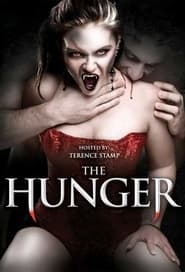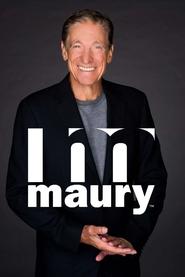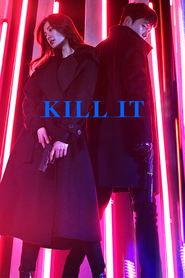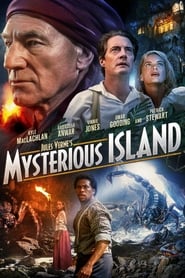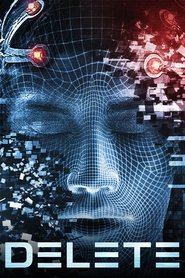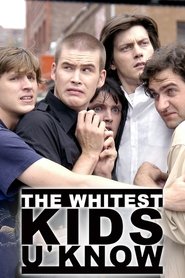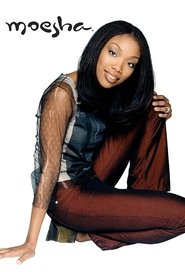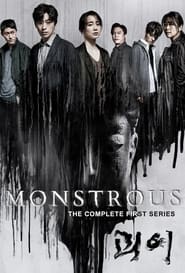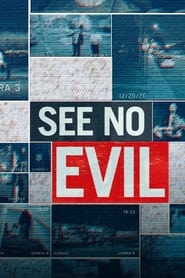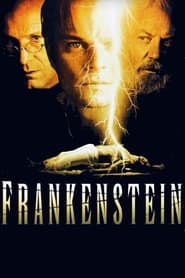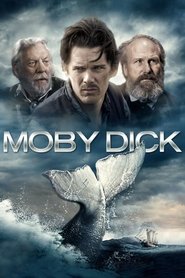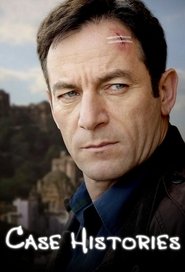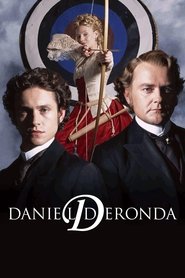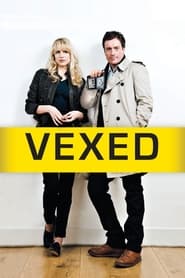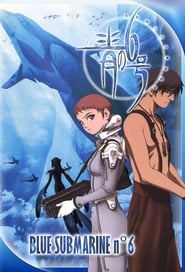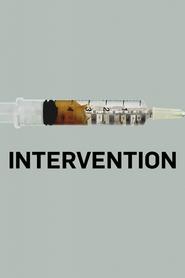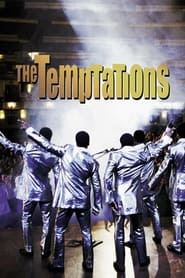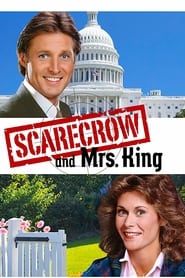Top Rated History TV Series on Tubi TV - Page 30
-
The Hunger
1997
The Hunger
1997
star 6The Hunger is a British/Canadian television horror anthology series, co-produced by Scott Free Productions, Telescene Film Group Productions and the Canadian pay-TV channel The Movie Network. Though it shares a title with the feature film The Hunger the series has no direct plot or character connection to the film, and was created by Jeff Fazio. Originally shown on the Sci Fi Channel in the UK, The Movie Network in Canada and Showtime in the US, the series was broadcast from 1997 to 2000, and is internally organized into two seasons. Each episode was based around an independent story introduced by the host; Terence Stamp hosted each episode for the first season, and was replaced in the second season by David Bowie. Stories tended to focus on themes of self-destructive desire and obsession, with a strong component of soft-core erotica; popular tropes for the stories included cannibalism, vampires, sex, and poison. -
Maury
1991
Maury
1991
star 5.3Veteran TV journalist Maury Povich tackles volatile issues with his guests and studio audience on this daily, hourlong talk show. -
Kill It
2019
Kill It
2019
star 7.3The story of a veterinarian killer who saves animals and a detective who saves people. -
Mysterious Island
2005
Mysterious Island
2005
star 5.2During the Civil War five survivors escape from a prison camp in Richmond, Virginia by hot air balloon and find themselves on an uncharted island in the Pacific. Far from any kind of known civilization, the island is inhabited with carnivorous monsters, bloodthirsty pirates, and mad genius Captain Nemo, who lives on the island for his own secretive ends. -
Delete
2013
Delete
2013
star 5.4Delete imagines a disaster in our all-too-fragile digital world where all computers could become dangerously self-aware with one systematic purpose–to destroy mankind. Faced with possible extinction, there is only one way out–create a second artificial intelligence, just as alive, just as intelligent and just as dangerous. -
The Whitest Kids U' Know
2007
star 8.2The New York-based sketch comedy ensemble takes it's act to the small screen in this outrageous cable series. Led by Trevor Moore and Zach Cregger, the troupe takes on every stereotype, foible, and irony found in everyday life, no matter how un-PC the results. -
Moesha
1996
Moesha
1996
star 7The everyday life of Moesha Mitchell, a vivacious young woman juggling romance, school, ever-changing family dynamics, and friendships. -
Monstrous
2022
Monstrous
2022
star 5.7A giant Buddha statue is unearthed in a small rural town. The mayor believes that it will change the town into a major tourist attraction. However, a catastrophe starts to grow. A centuries-old curse is unleashed from the statue, and it starts to eat up people's souls and make them non-human. Jung Ki-hoon, as archaeologist tries to seek the truth behind the paranormal phenomenon. -
A Piece of Your Mind
2020
A Piece of Your Mind
2020
star 7.2Moon Ha-won is an AI programmer and he is the founder of AH Company. He is a consistent person with a good heart. Meanwhile, Han Seo-woo works as a classical music recording engineer. Her life is unstable without a family or house, but she is a positive person. -
Glow Up: Britain's Next Make-Up Star
2019
star 6.7A talented cast of aspiring makeup artists live and work together as they attempt to prove their potential to industry professionals from a multitude of worlds from fashion to film. With regular eliminations, the challenges not only test their skills under pressure but also give them the opportunity to unleash their creative vision with jaw-dropping results. -
See No Evil
2015
See No Evil
2015
star 8.1Every second of every day, millions of Americans are caught on CCTV. Living in a surveillance society means everyday actions are caught on camera, mostly of honest citizens going about their daily lives. But a few are guilty of unspeakable crimes. Video doesn't discriminate; criminals also end up on film. See no Evil is a groundbreaking series that presents dramatic stories about how real crimes are solved with the aid of surveillance cameras. Police reveal how CCTV footage has unlocked the answer to cases that otherwise might have remained unsolved- leaving dangerous killers at large. The series features real footage and dramatic reconstruction, combined with first-hand testimony from police, witnesses, and families. -
Frankenstein
2004
Frankenstein
2004
star 5.9Adaptation of Mary Shelley's novel about a scientist who brings life to a creature fashioned from corpses and various body parts. -
Moby Dick
2011
Moby Dick
2011
star 5.7The sole survivor of a lost whaling ship relates the tale of his captain's self-destructive obsession to hunt the white whale, Moby Dick. -
Case Histories
2011
Case Histories
2011
star 7.8Case Histories is a British drama television series based on the Jackson Brodie detective novels by Kate Atkinson. It stars Jason Isaacs as Jackson Brodie. -
Daniel Deronda
2002
Daniel Deronda
2002
star 7.6Daniel Deronda is a British television serial drama adapted by Andrew Davies from the George Eliot novel of the same name. The serial was directed by Tom Hooper, produced by Louis Marks, and was first broadcast in three parts on BBC One from 23 November to 7 December 2002. The serial starred Hugh Dancy as Daniel Deronda, Romola Garai as Gwendolen Harleth, Hugh Bonneville as Henleigh Grandcourt, and Jodhi May as Mirah Lapidoth. Co-production funding came from WGBH Boston. Louis Marks originally wanted to make a film adaptation of the novel but abandoned the project after a lengthy and fruitless casting process. The drama took a further five years to make it to television screens. Filming ran for 11 weeks from May to August on locations in England, Scotland and Malta. The serial was Marks' final television production before his death in 2010. -
Vexed
2010
Vexed
2010
star 6.9Comedy drama following a mismatched pair of police officers who disagree on everything with their partner, from policing to their personal life. -
Blue Submarine No. 6
1998
Blue Submarine No. 6
1998
star 5.9The once famous and well respected scientist Zorndyke has bred a new genre of living being, one that thrives on the oceans and lives to destroy humans. Zorndyke believes it is time that the humans were relieved of their rule of the earth. It is up to Blue Submarine No. 6 and the rest of the Blue fleet to put an end to Zorndyke's madness and creations. -
Intervention
2005
Intervention
2005
star 7People whose uncontrollable addiction to drugs, alcohol or compulsive behavior has brought them to the brink of destruction and has devastated their family and friends are presented with a life-changing opportunity of intervention and rehab. Each addict must confront their darkest demons in order to begin their journey to recovery in the hopes that they can turn their lives around before it’s too late. -
The Temptations
1998
The Temptations
1998
star 8Biography of the singers who formed the hit Motown musical act, The Temptations. -
Scarecrow and Mrs. King
1983
star 6.3Scarecrow and Mrs. King is an American television series that aired from October 3, 1983, to May 28, 1987 on CBS. The show stars Kate Jackson and Bruce Boxleitner as divorced housewife Amanda King and top-level "Agency" operative Lee Stetson who begin a strange association, and eventual romance, after encountering one another in a train station.
 Netflix
Netflix
 Amazon Prime Video
Amazon Prime Video
 Apple iTunes
Apple iTunes
 Apple TV Plus
Apple TV Plus
 Disney Plus
Disney Plus
 Google Play Movies
Google Play Movies
 Paramount Plus
Paramount Plus
 Hulu
Hulu
 HBO Max
HBO Max
 YouTube
YouTube
 fuboTV
fuboTV
 Peacock
Peacock
 Peacock Premium
Peacock Premium
 Amazon Video
Amazon Video
 The Roku Channel
The Roku Channel
 AMC+
AMC+
 Kocowa
Kocowa
 Hoopla
Hoopla
 The CW
The CW
 Vudu
Vudu
 Starz
Starz
 Showtime
Showtime
 PBS
PBS
 Pantaflix
Pantaflix
 FXNow
FXNow
 Tubi TV
Tubi TV
 Kanopy
Kanopy
 Comedy Central
Comedy Central
 Crunchyroll
Crunchyroll
 Microsoft Store
Microsoft Store
 Redbox
Redbox
 Sun Nxt
Sun Nxt
 ABC
ABC
 DIRECTV
DIRECTV
 Crackle
Crackle
 Fandor
Fandor
 Plex
Plex
